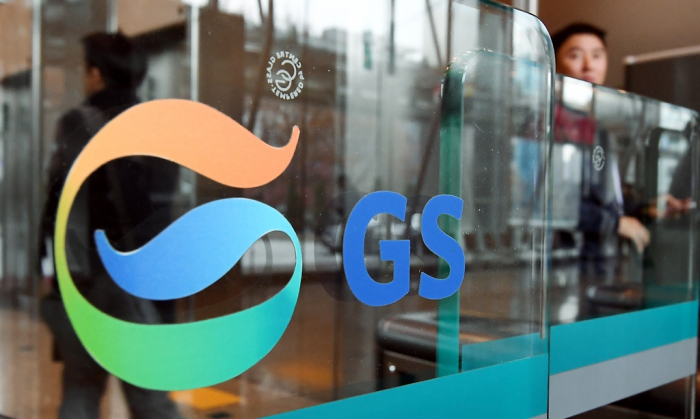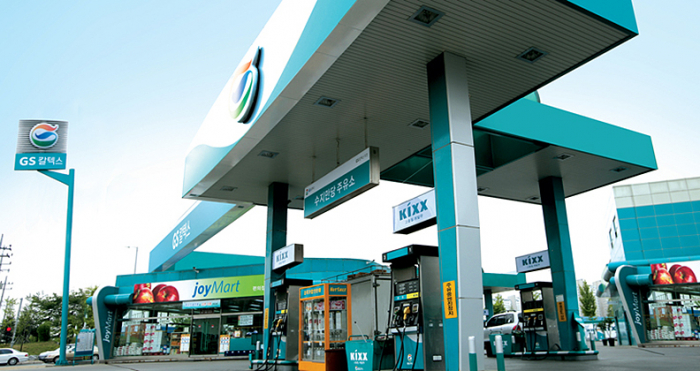Behind the Scenes
Why GS Group keeps debt-ridden, cash-guzzling affiliate afloat
The unit’s ownership structure and tricky transactions among affiliates have cast doubt over its business outlook
By May 19, 2022 (Gmt+09:00)
2
Min read
Most Read
LG Chem to sell water filter business to Glenwood PE for $692 million


Kyobo Life poised to buy Japan’s SBI Group-owned savings bank


KT&G eyes overseas M&A after rejecting activist fund's offer


StockX in merger talks with Naver’s online reseller Kream


Mirae Asset to be named Korea Post’s core real estate fund operator



GS Group, a South Korean energy-to-retail conglomerate, has an unlisted affiliate that the group largely keeps out of the public eye but is occasionally covered by local media outlets.
Winnerset, launched as Seungsan, a retailer and resort operator, in 1990, was rebranded in 2005 and is currently engaged in the petrochemical business.
In recent weeks, the company came under the media spotlight as it reported to the financial regulator that in 2021 it swung to profit for the first time in four years.
Data showed it posted 18 billion won ($14 million) in net profit, its first gain since a profit of 63.4 billion won in 2017. The company ran an operating profit of 36.7 billion won on revenue of 1.92 trillion won last year.
Despite this rare feat, however, most local media organizations turned their eyes to the company’s ballooning debt.
Following years of worsening profitability, the company’s short-term borrowing stood at 567.2 billion won at the end of 2021, with its debt ratio rising to 492.7% from 419.1% at end-2020.
The business outlook isn’t bright either.
This year’s chemical product sales in China, its main export market, won’t be as good as last year due to uncertainties over protracted lockdowns in major cities, including Shanghai, analysts said.

INTERNAL TRANSACTIONS
What’s more worrisome, according to media reports, is the controversy surrounding the company over its business dealings with other affiliates – a practice that could come under scrutiny by the nation’s fair trade watchdog.
Winnerset, which owns GS Aromatics Pte., had transactions worth 1.25 trillion won with GS Caltex Corp. last year, contributing to its return to the black.
GS Caltex, a 50-50 joint venture between GS Energy, a GS Holdings subsidiary, and US energy company Chevron Corp., is Korea’s second-largest oil refiner, playing the role of cash cow for the GS Group.
GS Group is widely said to be supporting the parent of GS Aromatics to keep it afloat by restructuring its business portfolio as needed.
In 2005, the company sold Konjiam Resort, a ski resort operator, to Serveone Co., a unit of LG Group, and handed over a struggling department store to GS Retail in 2008.
It took over promising GS Aromatics from GS E&C Corp. in 2006, and sold off major stakes in an asset management firm and a waste disposal company to another GS Group subsidiary as the two units were losing money.
What’s noteworthy, industry watchers said, is the ownership structure of Winnerset.
The company is 100% owned by the offspring of the group’s founding families and related parties.
Among its major shareholders are GS Energy Chief Executive Huh Yong-soo, who has a 18.7% stake in the company, Samyang Tongsang Co. CEO Huh Joon-hong (10.1%), GS Caltex CEO Huh Sae-hong (7.7%) and GS Executive Vice President Huh Seo-hong (7.5%).
Write to Ik-Hwan Kim at lovepen@hankyung.com
In-Soo Nam edited this article.
More to Read
-
 Electric vehiclesKorean refiners: Lubricating the future of electric vehicles
Electric vehiclesKorean refiners: Lubricating the future of electric vehiclesApr 17, 2022 (Gmt+09:00)
2 Min read -
 EnergyESG fever puts Korean oil refiners in quandary over facility upgrades
EnergyESG fever puts Korean oil refiners in quandary over facility upgradesJan 16, 2022 (Gmt+09:00)
3 Min read -

-
 PharmaceuticalsGS Group joins race to acquire Korea’s botox maker Hugel
PharmaceuticalsGS Group joins race to acquire Korea’s botox maker HugelJun 28, 2021 (Gmt+09:00)
2 Min read
Comment 0
LOG IN


